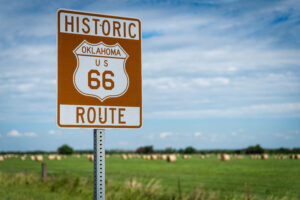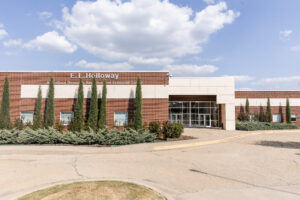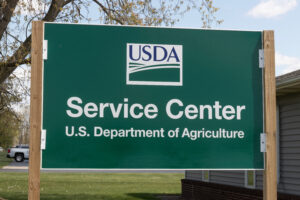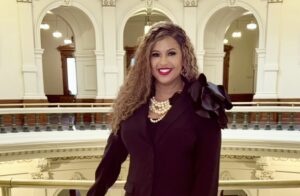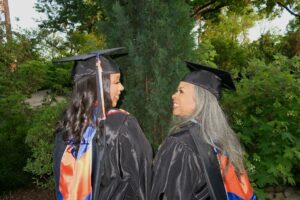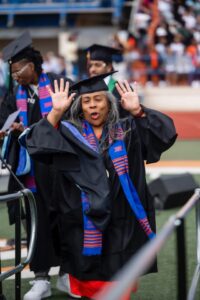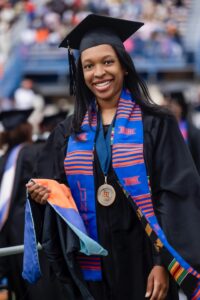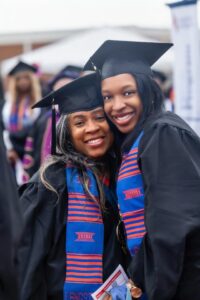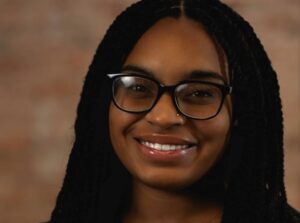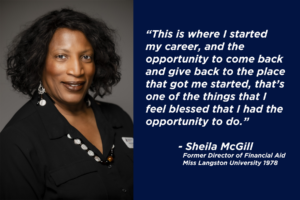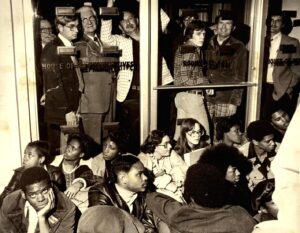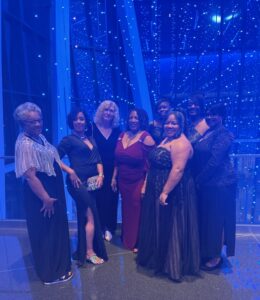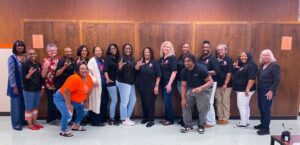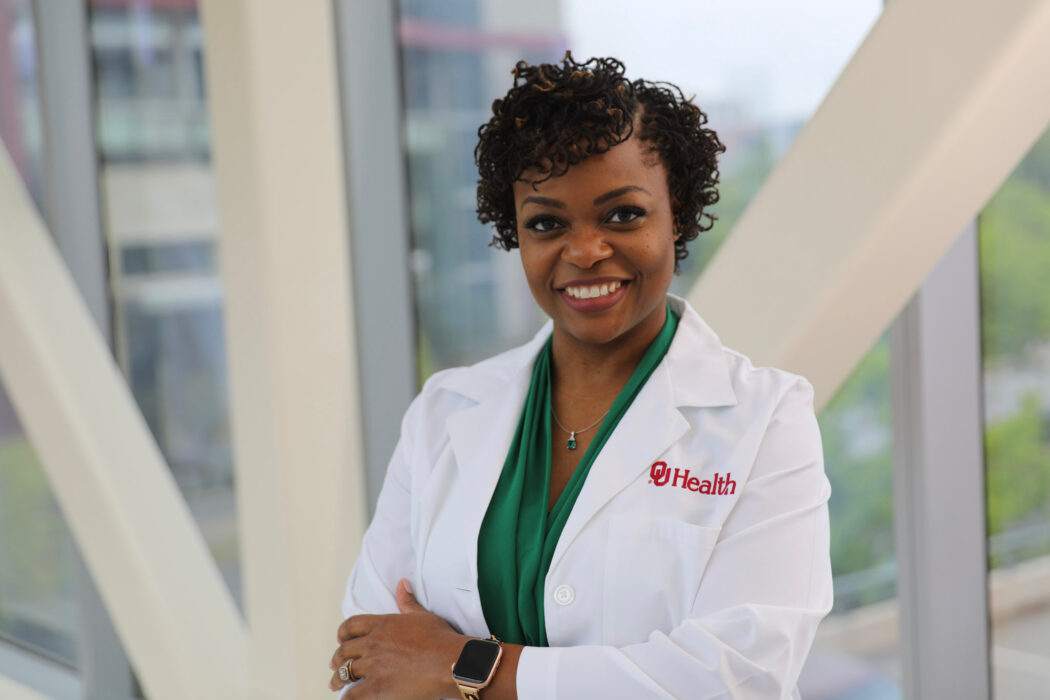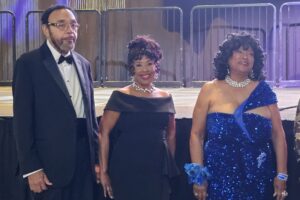
Langston University employees, alumnae honored at 14th annual Oklahoma African American Educators Hall of Fame
Langston University employees and alumnae were honored at the Fourteenth Annual Ceremony and Banquet of the Oklahoma African American Educators Hall of Fame on Friday, Sept. 26.
The honorees included recent Langston University retiree Dr. John K. Coleman, alumna Mrs. Carolyn Gay Harris, alumna Dr. Jolly Henderson Meadows, and former Langston University professor Dr, Melvin B. Tolson, who was honored posthumously.
Dr. John K. Coleman
Dr. Coleman attended LU from 1961-65, graduating with honors and earning a Bachelor of Science degree in Chemistry and Mathematics. He continued his education at the University of Oklahoma, where he earned his Ph.D. in Theoretical Physical Chemistry in 1976 and completed post-doctoral studies in 1978. After some time away, Dr. Coleman returned to Langston University in 1993 at the request of the late President Ernest Holloway to serve as the Chair of the Department of Chemistry and Physical Sciences.
Over the past three decades, Dr. Coleman not only served as chair of the Department of Chemistry, but his impact also extended beyond academic metrics. For generations of Langston University students, he has been a mentor, advocate and example – a leader who never stopped believing in the transformative power of education. Many of his former students are now faculty members at Langston University in the Chemistry or Biology Departments, shaping new generations in the same spirit he so faithfully modeled.
Dr. Coleman was appointed the interim dean of the School of Arts and Sciences in 2023, and he retired at the conclusion of the 2024-2025 school year.
Mrs. Carolyn Gay Harris
Mrs. Harris joined Langston University as a majorette in the Marching Pride, which was known at the time as the Langston Lions Band. Her time at Langston University was marked by academic achievement as she earned her Bachelor of Arts degree, laying a foundation for her future career in education. Pursuing further academic excellence, she completed a Master of Education degree at the University of Central Oklahoma in 1974.
Mrs. Harris began her professional journey at Spencer High School in Spencer, Oklahoma, where she taught for five years. Her commitment to shaping young minds extended to middle school classrooms for six years, and thereafter to administrative roles as both elementary and middle school principal for another six years. Her dedication and expertise culminated in her leadership as an elementary school principal for a remarkable 16 years. These decades of service reflect a career that spanned a total of 33 years, during which she touched the lives of countless students, faculty members and families.
Dr. Jolly Henderson Meadows
Dr. Meadows earned her Bachelor of Science degree in Elementary Education in 1974 from Langston University, followed by a Master of Education degree in Reading from Northeastern State University in 1979. She obtained a Master of Education degree in Leadership from Northeastern in 1986 and her Doctor of Education degree in Educational Leadership from Oklahoma State University in 1997.
Dr. Meadows began her 51-year career in education at Liberty Elementary in Sapulpa, Oklahoma. She joined Tulsa Public Schools in 1975 when she accepted a teaching position at Riley Elementary School, and she was appointed assistant principal at Patrick Henry Elementary School in 1986. After two years she was appointed principal – a position she held for 23 years. In 2006, Tulsa Public Schools took notice of the impressive academic growth Patrick Henry Elementary School showed under Dr. Meadows’ tenure and assigned her to Monroe Middle School. She was transferred to Gilcrest Middle School in 2007.
As an administrator, Dr. Meadows was known for utilizing innovative and reliable programs with proven outcomes to achieve academic gains. She employed a collaborative approach to empower teachers to become leaders, to disaggregate test data and to research supplemental instructional materials. She retired from Tulsa Public Schools in 2009 and worked as an adjunct professor of urban education in the undergraduate and graduate programs at Langston University–Tulsa. She accepted a full-time position as an Assistant Professor in the Department of Education at the University of Tulsa.
Dr. Meadows is also the vice president of the Langston University National Alumni Association-Tulsa Chapter (2021-present).
Dr. Melvin D. Tolson
Dr. Tolson taught English and speech at Wiley College in Marshall, Texas, for nearly two decades. In addition to teaching English, he established an award-winning debate team, the Wiley Forensic Society, which became a pioneer in interracial collegiate debates. Beginning in 1930, the team debated against law students from the University of Michigan in Chicago. In 1931, the team participated in the first known interracial collegiate debate in the South against Oklahoma City University. This is the story that inspired the film “The Great Debaters,” starring Denzel Washington.
Dr. Tolson took a sabbatical from teaching in 1930 to study for a master’s degree at Columbia University in New York City. His thesis project, “The Harlem Group of Negro Writers,” was based on his extensive interviews with members of the Harlem Renaissance, which inspired him to write “A Gallery of Harlem Portraits,” his first major work.
In 1947, Dr. Tolson relocated to Langston University, where he taught English, drama, and was a dramatist and director of the Dust Bowl Theater. Students described Tolson as eccentric, driven, fearless and radical. It was not unusual for him to stand on top of a desk and jump off to engage and challenge students during lectures. While at Langston University, Dr. Tolson was elected to multiple terms as mayor of Langston City.
Dr. Tolson’s career in education at the collegiate level spanned 43 years. He died in Dallas, Texas, on Aug. 29, 1966, and is buried in Guthrie, Oklahoma. His award was accepted by Dr. Cindy Ross, Chair of the LU Department of English and Foreign Languages in the School of Arts and Sciences.


